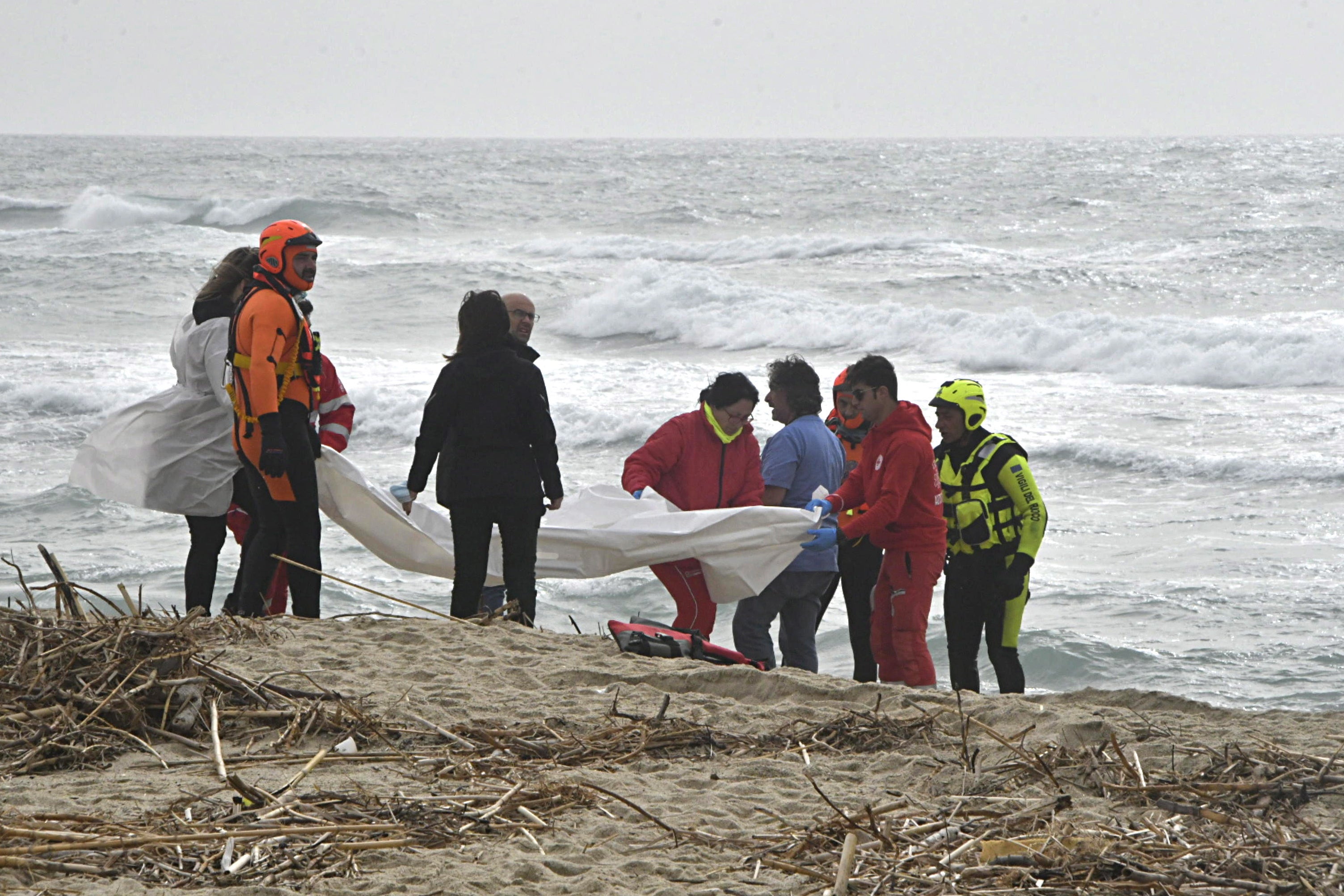The tragedy on the Italian coast highlights our need for compassion
Editorial: The bureaucratic attitude seems always to be aimed at doing the minimum required, rather than treating those in need as we would wish to be treated ourselves

The tragic death off the coast of Italy of more than 50 refugees, including a baby, is a poignant reminder that European nations including Britain have, with some outstanding exceptions, failed to face up to the scale of the flow of people seeking safety.
Even now, when there have been a number of such incidents causing loss of life, there seems to be little will on the part of governments to live up to their moral and legal obligations to offer asylum where it is justified under the European Convention on Human Rights (ECHR).
Worse still, some governments – including that of the UK – actively seek to renounce or evade such duties of care to the destitute and desperate. Instead, they demonise these people by using terms such as “invasion” and “illegal immigrants”. Such erroneous and violent language, much repeated, is readily taken up by the far-right groups that have launched a campaign of hate against refugees staying in hotels across the country.
It’s worth repeating that, in law, there is no such thing as an “illegal migrant”, because there is a universal human right for anyone to claim asylum and refugee status in a signatory nation to the ECHR. It is as simple as that. If their claims are rejected, then they are still people – people who deserve better than to be labelled with dehumanising terms like “illegals”. And, if they are primarily economic migrants, then it must be said, their labour is much needed.
It’s also worth pointing out that the people who drowned in the shipwreck in the Mediterranean were indeed from countries such as Iran, Iraq, Syria, Afghanistan, Pakistan and Somalia; countries where war, violence, and the denial of human rights indicate the likelihood of a genuine case for refugee status.
Whereas some elements of the press decry the refugees as young men “of fighting age”, in this case there were children involved, who were not a threat to anyone. If a migrant does commit a crime after they arrive, then they have chosen to be subject to the same police action and criminal justice as anyone else; there is no justification for the kind of vigilantism and mob rule we have seen in recent weeks.
European nations will not be able to prevent more such tragedies in future, nor will they be able to gain control over the process, until they create safe routes for processing refugee claims in a rational, orderly fashion.
There is much talk about deterrents, and sending refugees “back” or to places such as Rwanda. Yet it is apparent that these policies don’t work. Still the refugees arrive, despite the risk of death from drowning – the ultimate deterrent. Yet even when safe and orderly refugee schemes are set up, there is doubt as to whether they are sincerely administered.
As The Independent reports today, people who arrived under the UK’s much-vaunted Ukrainian refugee settlement schemes, designed to help those who are very obviously running for their lives, are struggling to bring loved ones to live with them in Britain because the official government schemes gave them fewer rights than other refugees. This cannot be right.
Either they are refugees and entitled to certain rights, or they are not. Having arrived as part of one of the settlement schemes confers de facto refugee status, and it would be absurd to pretend otherwise. And yet this is indeed what the authorities are apparently seeking to do, in granting only temporary three-year visas rather than full formal refugee status.
Indeed, there have been disturbing reports for some time that the Ukrainian schemes, along with those established to assist people fleeing Afghanistan, have not always worked as effectively as expected.
As with the drownings in the Mediterranean, which followed a series of poor responses by the Italian authorities to calls for assistance, the bureaucratic attitude seems always to be aimed at doing the minimum required, rather than treating those in need as we would wish to be treated ourselves.
European countries squabble about who should take in these helpless people. The example of mercy shown towards a million Syrians by the previous chancellor of Germany, Angela Merkel, has been ignored. The results are tragically predictable.






Join our commenting forum
Join thought-provoking conversations, follow other Independent readers and see their replies
Comments